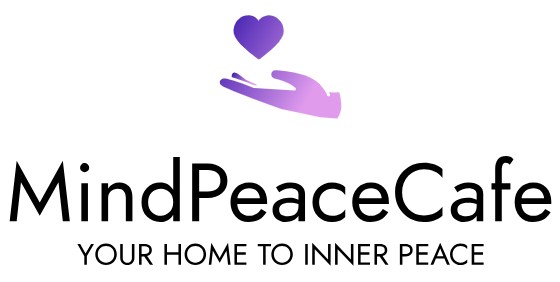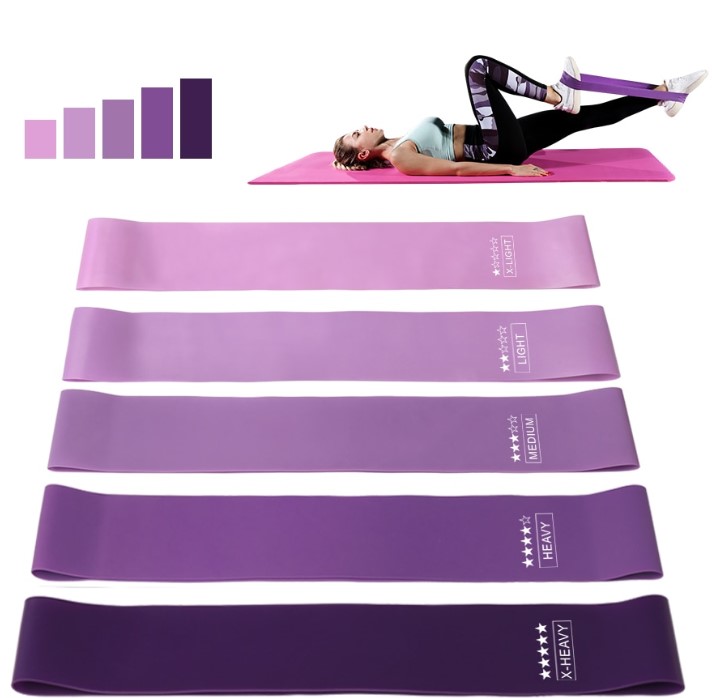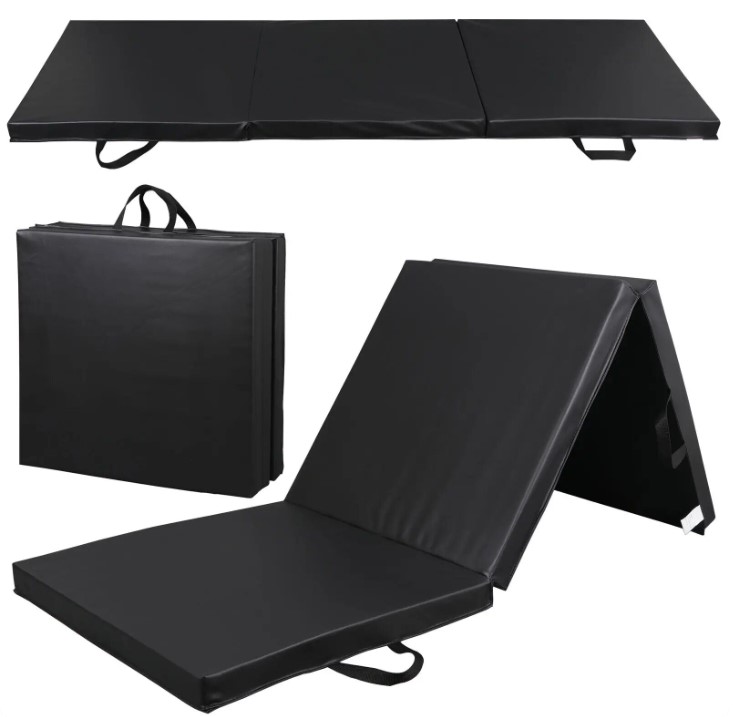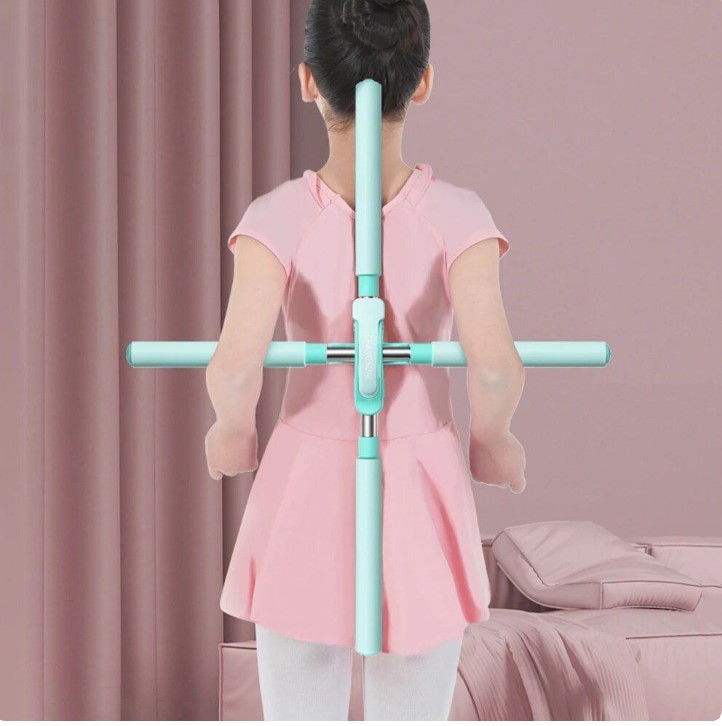Unlock the Secrets to a More Fulfilling Life: A Mindfulness Journey Through ‘The Power of Now’
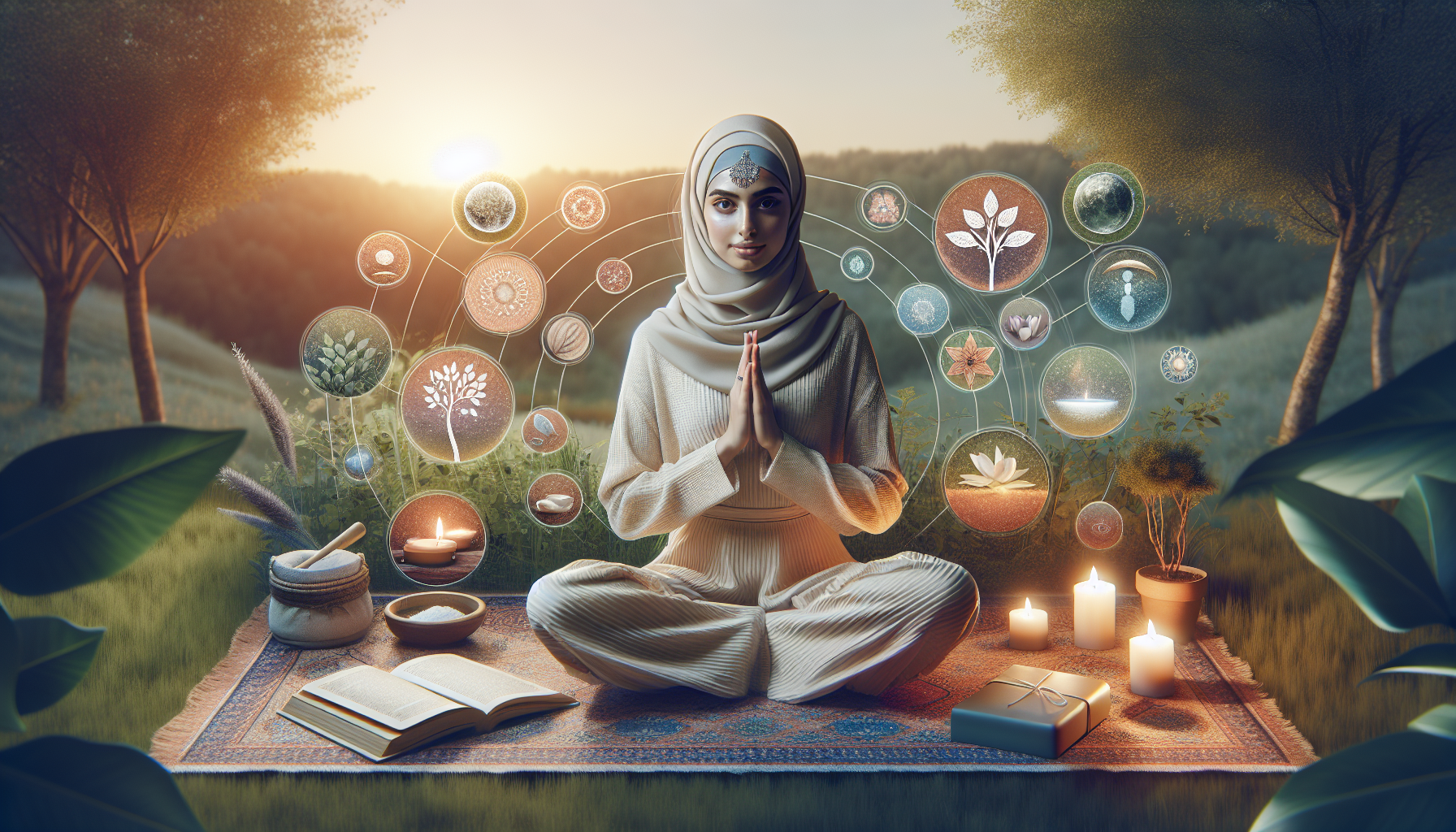
Mindfulness has become a buzzword in recent times, and for good reason. With the increasing demands of modern life, people are looking for ways to cultivate a sense of calm, clarity, and purpose. One of the most influential books on the topic of mindfulness is Eckhart Tolle’s ‘The Power of Now’, which has been a spiritual guide for millions of people around the world. In this article, we’ll embark on a monthly deep dive into the book, exploring its core principles and how they can be applied to mindfulness and meditation.
As we delve into the world of mindfulness, we’ll discover how living in the present moment can transform our lives and relationships. We’ll explore the importance of being present, and how it can lead to reduced stress, increased productivity, and a greater sense of fulfillment. We’ll also learn practical tips for incorporating mindfulness into our daily routine, and how to overcome common obstacles that might hinder our progress.
Through this journey, we’ll discover how ‘The Power of Now’ can be a powerful tool for meditators, and how its principles can enhance our meditation practice. We’ll explore mindfulness exercises, and learn how to build a consistent practice that brings lasting benefits. By the end of this journey, you’ll be equipped with the knowledge and inspiration to unlock the full potential of ‘The Power of Now’, and take your mindfulness practice to the next level.
1. Introduction to Mindfulness and ‘The Power of Now’
In today’s fast-paced world, it’s easy to get caught up in the hustle and bustle of daily life. We’re constantly bombarded with distractions, from social media to emails, and it’s easy to lose sight of what’s truly important. But what if you could break free from the cycle of stress and anxiety, and find a sense of inner peace and calm? This is where mindfulness comes in – a powerful tool that can help you cultivate a greater sense of awareness, clarity, and purpose.
At the heart of mindfulness is the concept of living in the present moment. Rather than dwelling on the past or worrying about the future, mindfulness encourages you to focus on the here and now. And one of the most influential books on this topic is Eckhart Tolle’s ‘The Power of Now’. First published in 1997, this spiritual guide has been a game-changer for millions of people around the world, offering a unique perspective on the nature of reality and our place in it.
Through ‘The Power of Now’, Tolle shares his insights on how to live a more mindful, authentic life. He explores the concept of the ‘pain-body’, the ego’s role in our suffering, and the importance of living in the present moment. By applying these principles, you can transform your life and relationships, and find a greater sense of fulfillment and purpose. In this article, we’ll delve deeper into the world of mindfulness and explore the significance of ‘The Power of Now’, and how it can be a powerful tool for personal growth and transformation.
The Rise of Mindfulness in Modern Times
In recent years, mindfulness has become a buzzword in modern society. And for good reason. With the increasing demands of modern life, people are looking for ways to cope with stress, anxiety, and depression. Mindfulness has emerged as a powerful tool for promoting mental health and well-being. According to a recent study, the mindfulness industry is projected to reach $2.5 billion by 2027, with millions of people around the world incorporating mindfulness into their daily routine.
So what’s driving the rise of mindfulness? One major factor is the growing awareness of the importance of mental health. With the increasing pressure to perform and produce, many people are finding it difficult to cope with the demands of modern life. Mindfulness offers a simple yet powerful solution – by focusing on the present moment, we can reduce stress, increase productivity, and improve our overall mental health. Additionally, the rise of technology has made it easier for people to access mindfulness resources, from meditation apps to online courses and tutorials.
As the popularity of mindfulness continues to grow, we’re seeing a shift in the way people approach mental health. Rather than relying on medication or therapy, people are turning to mindfulness as a proactive way to manage stress and anxiety. And the benefits are profound. By incorporating mindfulness into their daily routine, people are reporting improved mood, increased energy, and a greater sense of overall well-being. As we’ll explore in this article, mindfulness is a powerful tool that can transform our lives and relationships, and promote a greater sense of happiness and fulfillment.
Unlocking the Wisdom of ‘The Power of Now’
Eckhart Tolle’s ‘The Power of Now’ is a spiritual guide that has been a game-changer for millions of people around the world. Since its publication in 1997, the book has become a modern classic, offering a unique perspective on the nature of reality and our place in it. At its core, ‘The Power of Now’ is about living in the present moment, letting go of the past and the future, and finding inner peace and freedom. Tolle’s central message is that our suffering is caused by our identification with our thoughts, emotions, and ego, and that by transcending these limitations, we can find a deeper sense of purpose and fulfillment.
One of the key principles of ‘The Power of Now’ is the concept of the ‘pain-body’, which refers to the accumulation of past emotional pain that lives on in our bodies. Tolle argues that this pain-body is the root cause of our suffering, and that by becoming aware of it, we can transcend it and find a deeper sense of peace and freedom. Another key principle is the importance of living in the present moment, which Tolle calls the ‘Now’. By focusing on the present, we can let go of our worries about the future and our regrets about the past, and find a sense of inner peace and calm.
The significance of ‘The Power of Now’ lies in its ability to offer a fresh perspective on the human experience. In a world that is increasingly fast-paced and fragmented, Tolle’s message is a breath of fresh air, encouraging us to slow down, be present, and find inner peace. The book has been a source of inspiration for millions of people, and its principles have been applied in a wide range of contexts, from personal growth and spirituality to business and education. As we’ll explore in this article, ‘The Power of Now’ is a powerful tool that can help us transform our lives and relationships, and find a deeper sense of purpose and fulfillment.
2. Living in the Present Moment

Living in the present moment is a powerful tool for transforming our lives and relationships. When we’re stuck in the past, we can get caught up in regrets and nostalgia, while worrying about the future can lead to anxiety and uncertainty. By breaking free from the shackles of the past and future, we can find a sense of freedom and inner peace that’s hard to find in our fast-paced world. Living in the present moment means letting go of our attachment to thoughts, emotions, and outcomes, and instead, embracing the present moment with all its uncertainty and beauty.
One of the key benefits of living in the present moment is that it allows us to tap into our creativity, intuition, and inspiration. When we’re not stuck in our thoughts and worries, we can access a deeper sense of wisdom and guidance that’s always available to us. Additionally, living in the present moment can help us cultivate a sense of gratitude, appreciation, and awe for the world around us. By focusing on the present, we can let go of our complaints and dissatisfaction, and instead, find joy and contentment in the simple things.
So how can we start living in the present moment? The answer is simple: by paying attention to our thoughts, emotions, and sensations. By becoming aware of our inner experience, we can begin to let go of our attachment to the past and future, and instead, focus on the present moment. We can also practice mindfulness, meditation, and other spiritual practices that help us cultivate a sense of presence and awareness. As we’ll explore in this article, living in the present moment is a powerful tool that can transform our lives and relationships, and bring us greater joy, peace, and fulfillment.
The Importance of Being Present
Living in the present moment is a powerful tool for transforming our lives and relationships. By being present, we can tap into a sense of calm, clarity, and focus that’s hard to find in our fast-paced world. One of the key benefits of being present is reduced stress and anxiety. When we’re not stuck in our thoughts and worries, we can let go of our tension and feel more relaxed and at ease. Additionally, being present can increase our productivity and efficiency. By focusing on the task at hand, we can eliminate distractions and get more done in less time.
Another benefit of being present is improved relationships. When we’re fully engaged with the people around us, we can build deeper connections and communicate more effectively. We can also increase our sense of empathy and compassion, and show up more fully in our relationships. Furthermore, being present can increase our sense of joy and fulfillment. By focusing on the present moment, we can let go of our complaints and dissatisfaction, and instead, find joy and contentment in the simple things.
The benefits of being present are numerous, and can have a profound impact on our lives and relationships. By cultivating a sense of presence, we can improve our mental and physical health, increase our productivity and efficiency, and build deeper connections with the people around us. As we’ll explore in this article, being present is a powerful tool that can transform our lives and relationships, and bring us greater joy, peace, and fulfillment. By incorporating presence into our daily lives, we can live more intentionally, authentically, and fully.
Practical Tips for Staying Present
Incorporating mindfulness into our daily routine can be a game-changer for our mental and physical health. But how can we actually do it? The key is to start small and make it a habit. One practical tip is to start your day with a mindfulness practice, such as meditation or deep breathing. This can help set a positive tone for the rest of the day and increase your sense of calm and focus. Another tip is to bring mindfulness into your daily activities, such as eating or walking. By paying attention to your senses and the present moment, you can increase your sense of joy and appreciation for the simple things.
Another practical tip is to use mindfulness reminders throughout the day. This can be as simple as setting a reminder on your phone to take a few deep breaths or to practice a mindfulness exercise. You can also place mindfulness reminders in strategic locations, such as on your fridge or bathroom mirror. By incorporating mindfulness into your daily routine, you can increase your sense of calm, clarity, and focus. Additionally, you can also try to incorporate mindfulness into your daily commute, such as by listening to a guided meditation or by paying attention to your breath while driving.
By incorporating mindfulness into your daily routine, you can experience a range of benefits, from reduced stress and anxiety to increased productivity and joy. The key is to be consistent and make it a habit. By starting small and making it a part of your daily routine, you can experience the transformative power of mindfulness and live a more intentional, authentic, and fulfilling life. Remember, the goal is not to be perfect, but to be present and mindful in the moment.
3. The Power of Now and Meditation
At the heart of Eckhart Tolle’s ‘The Power of Now’ is the concept of living in the present moment. And one of the most powerful tools for achieving this is meditation. By incorporating meditation into your daily routine, you can deepen your understanding of the present moment and experience a range of benefits, from reduced stress and anxiety to increased clarity and focus. The key is to approach meditation as a practice, rather than a goal. By focusing on the present moment, you can let go of your attachment to thoughts and emotions, and instead, experience a sense of inner peace and calm.
One way to deepen your meditation practice is to incorporate mindfulness exercises into your daily routine. This can be as simple as paying attention to your breath or body sensations, or as complex as practicing loving-kindness meditation. By incorporating mindfulness into your meditation practice, you can increase your sense of awareness and presence, and experience a greater sense of connection to yourself and the world around you. Additionally, you can also try to incorporate mindfulness into your daily activities, such as eating or walking, to increase your sense of joy and appreciation for the simple things.
By combining the principles of ‘The Power of Now’ with meditation, you can experience a profound transformation in your life and relationships. You can increase your sense of calm, clarity, and focus, and experience a greater sense of joy and fulfillment. The key is to approach meditation as a practice, rather than a goal, and to be consistent in your efforts. By doing so, you can experience the transformative power of ‘The Power of Now’ and live a more intentional, authentic, and fulfilling life.
How ‘The Power of Now’ Complements Meditation
When it comes to meditation, many of us struggle to quiet the mind and stay present. This is where the principles of ‘The Power of Now’ can be a game-changer. By incorporating the concepts of living in the present moment, letting go of the ego, and accepting what is, you can deepen your meditation practice and experience a range of benefits. For example, by focusing on the present moment, you can let go of distractions and stay focused on your breath or meditation object. This can lead to a greater sense of calm, clarity, and inner peace.
The principles of ‘The Power of Now’ can also help you to cultivate a greater sense of awareness and acceptance during meditation. By recognizing that the present moment is all that exists, you can let go of attachment to thoughts and emotions, and instead, experience a sense of freedom and release. This can lead to a greater sense of connection to yourself and the world around you, and can even help you to experience a sense of oneness with the universe. By incorporating the principles of ‘The Power of Now’ into your meditation practice, you can experience a profound transformation in your life and relationships.
One of the key ways that ‘The Power of Now’ complements meditation is by helping you to let go of the ego and the constant stream of thoughts that can distract you from the present moment. By recognizing that the ego is just a mental construct, you can let go of attachment to your thoughts and emotions, and instead, experience a sense of inner peace and calm. This can lead to a greater sense of clarity and focus, and can even help you to experience a sense of fulfillment and purpose. By combining the principles of ‘The Power of Now’ with meditation, you can experience a profound transformation in your life and relationships, and can live a more intentional, authentic, and fulfilling life.
Mindfulness Exercises for Meditators
Incorporating mindfulness into your meditation routine can be a powerful way to deepen your practice and experience a range of benefits, from reduced stress and anxiety to increased clarity and focus. One of the key ways to do this is by incorporating mindfulness exercises into your daily routine. Here are a few practical exercises to get you started: start by paying attention to your breath, noticing the sensation of the air moving in and out of your body. As you focus on your breath, bring your attention to the present moment, letting go of thoughts and distractions.
Another exercise is to bring mindfulness into your daily activities, such as eating or walking. Pay attention to the sensations in your body, the sights and sounds around you, and the sensation of the air on your skin. This can help you to cultivate a greater sense of awareness and presence, and can even help you to experience a sense of joy and appreciation for the simple things. Additionally, you can also try body scan meditation, where you bring your attention to different parts of your body, starting from your toes and moving up to the top of your head.
By incorporating mindfulness exercises into your meditation routine, you can experience a range of benefits, from reduced stress and anxiety to increased clarity and focus. You can also experience a greater sense of connection to yourself and the world around you, and can even experience a sense of oneness with the universe. Remember, the key is to approach mindfulness with an open and non-judgmental mindset, and to be consistent in your efforts. By doing so, you can experience the transformative power of mindfulness and live a more intentional, authentic, and fulfilling life.
4. Overcoming Common Obstacles to Mindfulness
One of the biggest challenges to establishing a consistent mindfulness practice is overcoming common obstacles that can get in the way. Perhaps one of the most common obstacles is the tendency to get distracted by thoughts, emotions, or physical discomfort. This can be especially challenging when you’re just starting out, and it’s easy to get discouraged and give up. However, the key is to be patient and kind to yourself, and to remember that mindfulness is a practice that takes time and effort to develop.
Another common obstacle is the lack of motivation or inspiration. This can be especially true when you’re feeling stuck or uninspired, and it’s easy to let your mindfulness practice fall by the wayside. To overcome this, try to find ways to make mindfulness more engaging and enjoyable, such as trying new techniques or incorporating mindfulness into your daily activities. You can also try to find a mindfulness buddy or join a mindfulness community to provide support and motivation.
By recognizing and overcoming these common obstacles, you can maintain a consistent mindfulness practice and experience the many benefits that it has to offer. Remember, the key is to approach mindfulness with an open and non-judgmental mindset, and to be patient and kind to yourself. By doing so, you can overcome any obstacle and establish a mindfulness practice that brings you joy, clarity, and a sense of inner peace. With consistent effort and practice, you can overcome any obstacle and live a more intentional, authentic, and fulfilling life.
Dealing with Distractions and Mental Chatter
One of the biggest challenges of mindfulness practice is dealing with distractions and mental chatter. It’s easy to get caught up in thoughts, worries, and to-do lists, and before you know it, you’re no longer present in the moment. But the good news is that there are ways to overcome these distractions and stay focused and calm. One of the most effective techniques is to acknowledge the distraction and gently let it go, without judgment or attachment. This can be as simple as taking a deep breath and refocusing on your breath, or noticing the sensation of your feet on the ground.
Another technique is to use mindfulness labels to identify and let go of distractions. For example, when you notice your mind wandering, you can label the thought as ‘thinking’ or ‘worrying’, and then gently bring your attention back to the present moment. This can help you to develop a sense of detachment from your thoughts and emotions, and to stay focused on what’s truly important. Additionally, you can also try to practice mindfulness in daily activities, such as eating or walking, to help you stay present and focused in the face of distractions.
By learning to deal with distractions and mental chatter, you can experience a greater sense of calm and clarity in your daily life. You can stay focused on what’s truly important, and avoid getting caught up in unnecessary stress and anxiety. Remember, mindfulness is a practice that takes time and effort to develop, but the benefits are well worth it. With patience, kindness, and consistency, you can overcome distractions and stay present in the moment, leading to a more intentional, authentic, and fulfilling life.
Building a Consistent Mindfulness Practice
Building a consistent mindfulness practice is key to experiencing the many benefits that mindfulness has to offer. But how do you make mindfulness a sustainable part of your daily routine? One of the most effective ways is to start small and be consistent. Begin with a daily mindfulness practice of just 5-10 minutes, and gradually increase the duration as you become more comfortable with the practice. You can also try to incorporate mindfulness into your daily activities, such as eating or walking, to make it a more natural part of your daily routine.
Another important factor is to make mindfulness a habit. This can be done by setting a specific time and place for your mindfulness practice, and trying to stick to it as much as possible. You can also try to find a mindfulness buddy or join a mindfulness community to provide support and motivation. Additionally, you can try to track your progress and celebrate your successes, no matter how small they may seem. This can help to build motivation and reinforce the habit of mindfulness.
By making mindfulness a consistent part of your daily routine, you can experience a greater sense of calm, clarity, and purpose. You can stay focused and motivated, even in the face of challenges and distractions. And you can live a more intentional, authentic, and fulfilling life. Remember, the key is to be patient, kind, and consistent, and to celebrate your progress along the way. With time and effort, you can build a mindfulness practice that brings you joy, peace, and happiness.
5. Conclusion: Unlocking the Full Potential of ‘The Power of Now’
As we conclude our deep dive into ‘The Power of Now’, we’ve uncovered the transformative power of mindfulness and the importance of living in the present moment. We’ve learned how to overcome common obstacles, stay focused and calm in the face of distractions, and build a consistent mindfulness practice. We’ve also discovered the significance of Eckhart Tolle’s influential book, ‘The Power of Now’, and how its principles can enhance our meditation practice and transform our lives.
As we continue on our mindfulness journey, we’re inspired to live a more intentional, authentic, and fulfilling life. We’re motivated to let go of the past, release the need for control, and simply be present in the moment. We’re empowered to cultivate a greater sense of awareness, clarity, and purpose, and to live a life that’s true to who we are. And we’re grateful for the wisdom and guidance of ‘The Power of Now’, which has shown us the way to unlock our full potential and live a life of joy, peace, and happiness.
As we move forward, we’re excited to continue exploring the world of mindfulness and to deepen our practice. We’re inspired to share our newfound wisdom with others, and to create a ripple effect of positivity and inspiration. And we’re committed to living a life that’s true to who we are, and to unlocking the full potential of ‘The Power of Now’ in every aspect of our lives. Remember, the journey of mindfulness is a lifelong journey, and every step we take brings us closer to living a life that’s fully alive, fully engaged, and fully present.
The Transformative Power of Mindfulness
As we reflect on the impact of mindfulness on our lives and relationships, we’re reminded of the profound transformation that can occur when we cultivate a greater sense of awareness and presence. We’ve seen how mindfulness can reduce stress and anxiety, improve our mental and physical health, and increase our sense of joy and fulfillment. We’ve also seen how mindfulness can improve our relationships, by helping us to communicate more effectively, empathize more deeply, and connect more authentically.
Through mindfulness, we’ve gained a greater sense of clarity and purpose, and we’re more able to live a life that’s true to who we are. We’ve become more compassionate, more patient, and more kind, and we’re more able to navigate life’s challenges with grace and ease. We’ve also become more aware of our thoughts, emotions, and behaviors, and we’re more able to make conscious choices that align with our values and goals.
As we look to the future, we’re excited to continue exploring the transformative power of mindfulness. We’re inspired to share our newfound wisdom with others, and to create a ripple effect of positivity and inspiration. We’re committed to living a life that’s fully alive, fully engaged, and fully present, and we’re grateful for the guidance and wisdom of ‘The Power of Now’ and the practice of mindfulness.
Next Steps on Your Mindfulness Journey
As we embark on the next steps of our mindfulness journey, we’re filled with excitement and anticipation. We’re eager to explore new depths of awareness, compassion, and wisdom, and to discover the countless possibilities that await us. We’re inspired to continue cultivating our mindfulness practice, to deepen our understanding of ourselves and the world around us, and to unlock the full potential of our lives.
As we move forward, we’re empowered to take bold steps towards living a life that’s truly authentic, intentional, and fulfilling. We’re motivated to let go of old patterns, habits, and limitations, and to embrace the freedom and flexibility that comes with living in the present moment. We’re excited to explore new mindfulness practices, to connect with like-minded individuals, and to join a community of kindred spirits who share our passion for living a mindful, compassionate, and purposeful life.
The possibilities that await us are endless, and we’re thrilled to embark on this journey of discovery and growth. We’re inspired to live a life that’s fully alive, fully engaged, and fully present, and to share our wisdom, love, and compassion with the world. We’re committed to living a life that’s true to who we are, and to unlocking the full potential of our lives through the power of mindfulness.
How can I incorporate mindfulness into my daily routine?
Start with small, manageable steps, such as dedicating 5-10 minutes each day to mindfulness practice, like meditation or deep breathing exercises. You can also incorporate mindfulness into daily activities, such as eating or walking, by focusing on the present moment and letting go of distractions.
What are some common obstacles to mindfulness and how can I overcome them?
Common obstacles to mindfulness include distractions, mental chatter, and emotional resistance. To overcome these obstacles, try to focus on your breath, body sensations, or sensory experiences, and practice self-compassion and patience when faced with challenges.
How can I use mindfulness to improve my relationships?
Mindfulness can improve relationships by increasing empathy, communication, and understanding. Practice active listening, stay present in conversations, and approach conflicts with a non-judgmental attitude. You can also use mindfulness to cultivate gratitude and appreciation for your loved ones.
Can mindfulness be practiced by anyone, regardless of age or background?
Yes, mindfulness can be practiced by anyone, regardless of age or background. It’s a universal practice that can benefit people from all walks of life, including children, adults, and seniors. You can adapt mindfulness practices to suit your individual needs and abilities.
How can I make mindfulness a sustainable part of my lifestyle?
Make mindfulness a sustainable part of your lifestyle by incorporating it into your daily routine, setting aside time for practice, and finding a supportive community or accountability partner. You can also explore different mindfulness practices, such as meditation, yoga, or walking, to find what works best for you.
